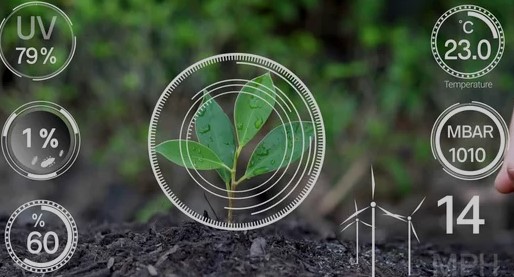Introduction
Data plays a crucial role in crop selection for farmers, helping them make informed decisions to maximise yields, optimize resource use, and mitigate risks. India is a mixed economy, farming plays a crucial role in its economy, and it is an area where technology is being increasingly adopted. The rural areas surrounding India’s tech hubs, like Chennai, Delhi, or Bangalore, are dominated by farming. Thus, it would not be surprising if a Data Science Course in Delhi or Bangalore contains modules that are tailored for the agriculture segment.
Data Science in Farming
Here’s a guide on how data can assist farmers in crop selection:
- Historical Data Analysis
Farmers can analyse historical data on crop performance, weather patterns, soil quality, and market trends to identify which crops have performed well in the past and are suitable for their specific location and conditions. Historical yield data from previous seasons can provide insights into which crops are most profitable and resilient to local environmental factors.
- Soil Testing and Analysis
Soil data, obtained through testing and analysis, can inform crop selection decisions by providing information on soil fertility, pH levels, nutrient content, and moisture retention capabilities. Soil testing helps farmers determine which crops are best suited to their soil type and nutrient requirements, allowing for targeted fertilisation and soil management practices. Agriculturists and agriculture scientists are increasingly seeking to acquire data analytical skills by attending boot camps, taking online courses, or enrolling on a data science course.
- Remote Sensing and Satellite Imagery
Remote sensing technologies, such as satellite imagery and drones, provide valuable data on crop health, growth patterns, and environmental conditions. Farmers can use satellite imagery to monitor vegetation indices, detect pest and disease outbreaks, assess water stress, and identify areas of nutrient deficiency or excess. Some urban learning centres cover such advanced topics in their course curriculum; for instance, a data science course in Delhi, Chennai, or Bangalore.
- Climate and Weather Data
Access to real-time climate and weather data enables farmers to make informed decisions about crop selection based on seasonal forecasts, temperature fluctuations, precipitation patterns, and risk of extreme weather events. Climate data helps farmers choose crops that are resilient to local climate conditions, such as drought-tolerant varieties or crops that require specific temperature ranges for optimal growth.
- Market Analysis and Demand Forecasting
Farmers can leverage market data and demand forecasts to select crops that have high market demand and offer favourable pricing and profitability. Market analysis helps farmers identify niche markets, emerging trends, and value-added opportunities, allowing them to diversify their crop selection and maximize returns.
- Crop Modelling and Simulation
Crop modeling and simulation tools use data-driven algorithms to predict crop yields, growth dynamics, and potential outcomes under different management scenarios.
Farmers can simulate various crop rotation strategies, planting dates, irrigation schedules, and input use scenarios to optimize crop selection and management practices. An advanced Data Science Course covers simulation as part of AI techniques used in data science.
- Integration of Data Platforms
Integrated data platforms and farm management software allow farmers to consolidate and analyse diverse data sources, such as weather stations, soil sensors, equipment telemetry, and agronomic databases. These platforms provide farmers with actionable insights, decision support tools, and recommendations for crop selection, planting decisions, and agronomic management practices.
Conclusion
By leveraging data-driven insights and analysis, farmers can optimise crop selection decisions, improve productivity and profitability, and sustainably manage their agricultural operations to meet evolving market demands and environmental challenges. Thus, a technology-aware farmer can, to a great extent, combat the vagaries of weather and ensure that farming is as lucrative as any other profession by learning at least the basics of data science, say, by attending a data science course.
Name: ExcelR- Data Science, Data Analyst, Business Analyst Course Training in Delhi
Address: M 130-131, Inside ABL Work Space,Second Floor, Connaught Cir, Connaught Place, New Delhi, Delhi 110001
Phone: 09632156744
Business Email:enquiry@excelr.com
